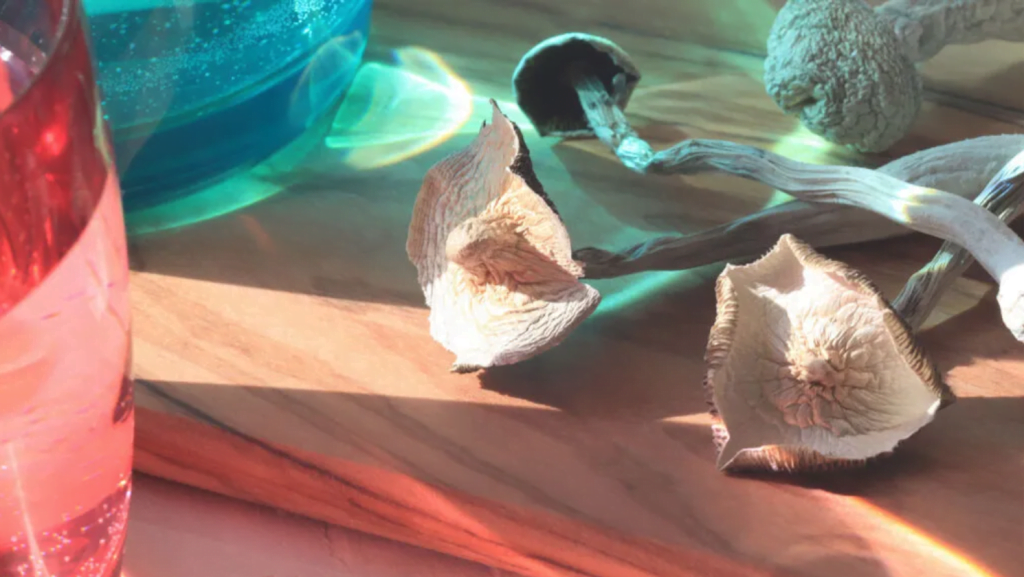Uncategorized
Microdoses of psychedelic mushrooms may improve mood and mental health
Psychedelics mushrooms benefits for mental health improvement, depression and anxiety. Buy magic mushrooms
- Microdosing refers to the practice of regularly using small amounts of psychedelic substances that do not impair cognitive function.
- Evidence from mostly small observational studies suggests that microdosing psilocybin, the psychoactive ingredient in magic mushrooms, can improve cognitive function and alleviate symptoms of depression and anxiety.
- In agreement with these data, a large study now shows that individuals who microdose psilocybin showed improved mood and a greater decline in anxiety, depression, and stress over a one-month period than those who did not microdose.
- Notably, these improvements in mental health and mood associated with microdosing psilocybin were also observed in individuals with mental health concerns.
A large study recently published in the journal Scientific ReportsTrusted Source shows that microdosing Trusted Source psilocybin Trusted Source resulted in greater improvements in mental health and mood than in individuals who did not engage in microdosing.
The study’s co-author Joseph Rootman, a doctoral student at the University of British Columbia, said that the study was “the largest longitudinal study to date” on microdosing psilocybin and one of the few pieces of research to include a control group.
“We found psilocybin microdosing to be associated with improvements in mood and mental health, which adds to the growing body of research that suggests positive benefits of microdosing specifically in the domains of mental health and cognition.”
— Joseph Rootman, study co-author
“We hope that our findings will help facilitate the development of more rigorously designed clinical trials,” he added.
What is microdosing?
Naturally occurring psychedelic substances such as psilocybin extract from magic mushrooms and mescaline have been used for their beneficial health effects for thousands of years. The classification of psychedelic substances such as psilocybin and LSD as drugs of abuse without any medical use has, however, hindered research on the therapeutic effects of these substances.
In recent years, there has been a resurgence of scientific and popular interest in the potential use of psychedelic drugs for the treatment of depression, anxiety, and post-traumatic stress. For instance, psilocybin, the active ingredient in magic mushrooms, has shown Trusted Source promise in the treatment of individuals with depression, anxiety, and substance use disorders.
These studies have generally used regular doses of psilocybin that produce euphoric and hallucinogenic effects. However, the use of regular doses of psilocybin can also produce unpleasant and terrifying experiences, also referred to as “bad trips”.
This has led to the adoption of a practice called microdosing,Trusted Source which involves the consumption of small amounts of psychedelic substances that do not produce hallucinogenic effects.
Most ‘microdosers’ use about 10% of the regular dose of psilocybin, equivalent to about 100-300 milligrams of dried mushrooms, between 2-5 times a week.
Effects of microdosing psilocybin
The present study consisted of 953 microdosers using psilocybin and 180 individuals who were not microdosing. The participants completed a series of questionnaires and tasks on their mobile devices at the onset of the study and at one month after recruitment.
These assessments included self-report questionnaires to assess mood and symptoms of anxiety, depression, and stress. The researchers also assessed cognitive function and psychomotor ability, which refers to physical movements that require cognitive processing.
The researchers found that microdosers showed greater improvements in mood and larger reductions in symptoms of depression, anxiety, and stress over the study period than non-microdosers.
These positive effects of microdosing were observed in all participants, regardless of whether they used psilocybin alone or a combination of either psilocybin with lion’s mane, or psilocybin, lion’s mane, and niacin.
Moreover, microdosing psilocybin resulted in similar levels of improvements in mental health and mood across age groups, genders, and among individuals who did or did not have mental health concerns.
The only exception was female microdosers who showed larger reductions in depressive symptoms than males.
The researchers also found that older microdosers showed larger improvements in the psychomotor test, but not cognitive function, than non-microdosers. This effect was largely due to older participants over the age of 55 years using a combination of psilocybin, lion’s mane, and niacin.
In sum, the results of this study add to the current evidence on the beneficial effects of microdosing psilocybin on mental health and mood, including among individuals with mental health concerns.

 Français
Français Deutsch
Deutsch 中文 (中国)
中文 (中国) Español
Español

Thank you for your sharing. I am worried that I lack creative ideas. It is your article that makes me full of hope. Thank you. But, I have a question, can you help me?